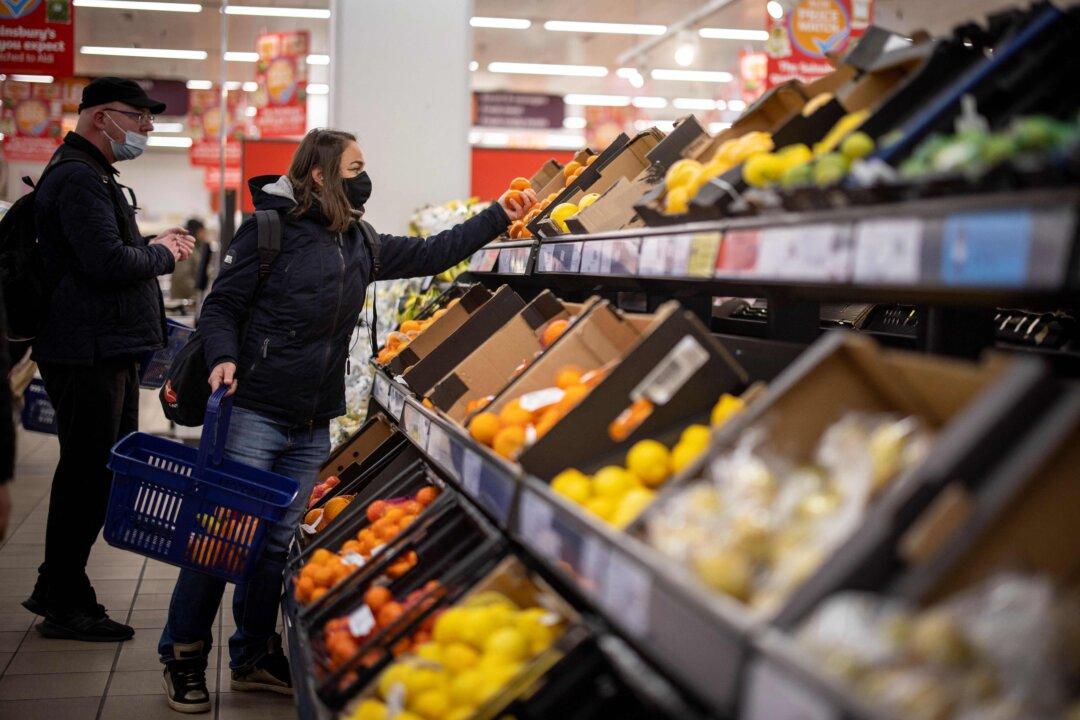Food prices in the United Kingdom have hit their highest record since 1980, after inflation soared by double digits last month.
Last month’s inflation figures have squeezed the living standards of millions of British households, especially those with low incomes, who are struggling with the high costs.





